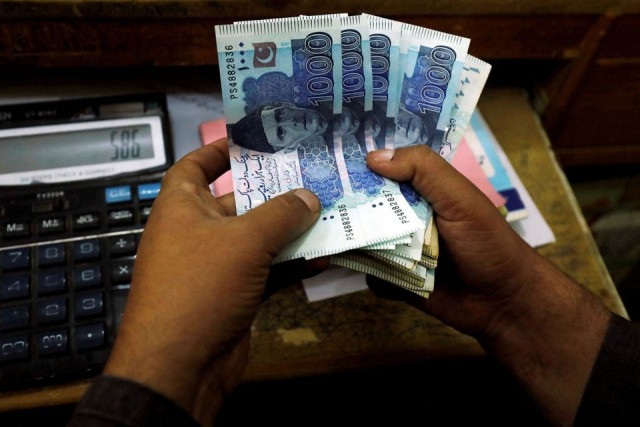Exchange companies offer to fund imports
Financing LCs through open market to divert forex from hawalahundi markets

The open market’s currency dealers have offered to finance imports of up to $50,000 each to help the government mitigate the risk of default after the country’s foreign currency reserves depleted to a 25-day import cover on Saturday. The Exchange Companies Association of Pakistan (ECAP) General Secretary, Zafar Paracha said they have already given the proposal to Finance Minister Ishaq Dar in a recent meeting. The government’s response is awaited. Speaking to the Express Tribune Paracha said, “We may finance imports (letters of credit /LCs) worth $200-250 million in the next one-month.”
“We will offer the financing at Rs255 per dollar, as compared to Rs227 per dollar in the interbank market,” he said, adding that “The rate has spiked to Rs270 per dollar in the black market,” he informed. “The financing of LCs through the open market will help divert foreign exchange from the illegal hawala-hundi markets to the legal open markets,” hoped Paracha.
“It is not necessary that all the importers demand a maximum of $50,000, however, a large number require the range of $5,000 to $25,000 for each import,” he explained. “We will prioritise financing essential imports like medicines and other similar items,” he underscored, adding that they “do not have the offered amount in the form of reserves.
They will, however, expedite their efforts to arrange the additional funding by attracting more workers’ remittances into the country and agreeing to sell the amount parked at homes.” Foreign exchange reserves are estimated to have depleted to a nineyear low at $4.56 billion at present after the government repaid commercial loans worth over $1 billion. The ECAP statement notes that banks are reluctant and have flatly refused to open LCs.
“Accordingly, the exchange companies feel their national responsibility and have decided to reduce the burden and help the government by providing US dollars, as we are already providing for credit card settlements, education, medical, zairin, hajj and umrah, immigration and travelling,” read the statement. In this regard, if the government permits, exchange companies are ready to make payments of up to $50,000 for the LCs in pending and also to open new LCs.
This will help relieve some of the pressure from the government and ensure the supply of essential goods to the public. Meanwhile, the government’s reliance on domestic debt is on the rise in the absence of flows of foreign debt after the suspension of the IMF loan programme.
The central bank’s frequency of injecting big funds for longer tenures into commercial banks has gone up in recent times, as injection of funds are made for the cash-strapped government. The central bank also conducted a special auction of T-bills to help the government raise fresh funding from domestic commercial banks last week (on January 3). The government borrowed Rs655 billion in the auction against the set target of Rs300 billion. The central bank has injected a total of Rs1.7 trillion into commercial banks in the first six days of the new year (January 1-6) for up to 73 days.


















COMMENTS
Comments are moderated and generally will be posted if they are on-topic and not abusive.
For more information, please see our Comments FAQ